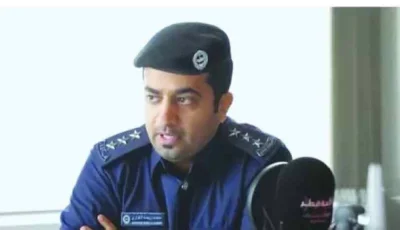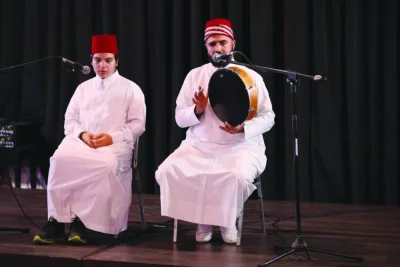The odds that you would happen to see a female limousine driver in Doha are slim. Still, Qatar is not just any other country; women are free to do whatever they like. Well, mostly. And if you commit the error of thinking they could not drive any better than their male counterparts, try getting your right of way with a woman in Doha traffic. There are probably as many women as there are men on Doha roads. Women at the wheel of public transport or limousine services are not as many. It is not the norm. So even as there are many of them driving all sorts of vehicles in their private capacity, from those with little engines to the SUVs, it is still a novelty to find female chauffeurs.
Mina Thapa Chhetri, a mother of nine-year-old, the first female chauffeur from Nepal in Qatar, is breaking that stereotype. From the modest beginning as a cleaner, Mina has come a long way. She came to Qatar in 2013 as a school cleaner and later after an year and half went on to learn driving and acquire a driving licence. After the expiry of her initial contract, she managed to join a limousine company in Qatar, disregarding the narrative that women cannot be chauffeurs, to support her family.
Before coming to Doha, Mina had worked in Malaysia to help with the bags for a solar company. Talking about family and life back home in Nepal, Mina said, “I have a big family. We’re five sisters and three brothers. I’m the youngest one. But, to support my family, I had to look for a job when I was merely thirteen years old. I worked as a tourist guide and as an assistant teacher in Nepal although I never attended a formal school as a kid.”
As she drives her limo in Qatar, she talks about the stereotypes she faces in her daily life. “I have broken the stereotype with my own patience. I come from a very conservative society but my family has always been very supportive of whatever I do and go for. They’re my real strength in what I am today,” she says.
Talking about driving around in Doha, Mina says, “It is difficult to be a driver in a foreign country, at least, psychologically. Many of my passengers don’t believe that I am a Nepali. They think I am an East Asian, an Indonesia or a Malaysian. I love talking to my passengers when I’m driving them to destinations. I know Arabic quite well. I want to know more about them, for what they do and the kind of life they’re living around.” Chhetri finds her passengers happy to see a woman behind the wheel. “I think women are much more careful drivers than men. The percentage of female accidents is very low. Children and seniors alike really like to ride with female chauffeurs. Back in Nepal even, we have very few female cab drivers. Last year I met one, and she was quite a bold woman. I was proud to see my reflection in her,” she says.
Drawing parallel between female chauffeurs in Nepal and Qatar, Chetri says, “It’s a matter of security for a woman driver in Nepal. However, in Qatar it’s totally different. We feel so secure here.”
An independent woman, Chhetri is an inspiration to Nepali rural women. She is the sole breadwinner of her family, including son, husband and in-laws. “They [family] live in Chitwan, which is quite expensive. But my job pays me enough,” she tells.
Recently, Chhetri also opened a small shop selling plumbing items in Chitwan for her home-bound husband and in-laws.
Chhetri wants to continue driving in Qatar. “My plan is to own vehicles in Nepal to ferry female passengers.” She feels confident that a driver’s job is more than enough to survive.

DISTINCTION: There are probably as many women as there are men on Doha roads but women at the wheel of public transport or limousine services are not as many.


